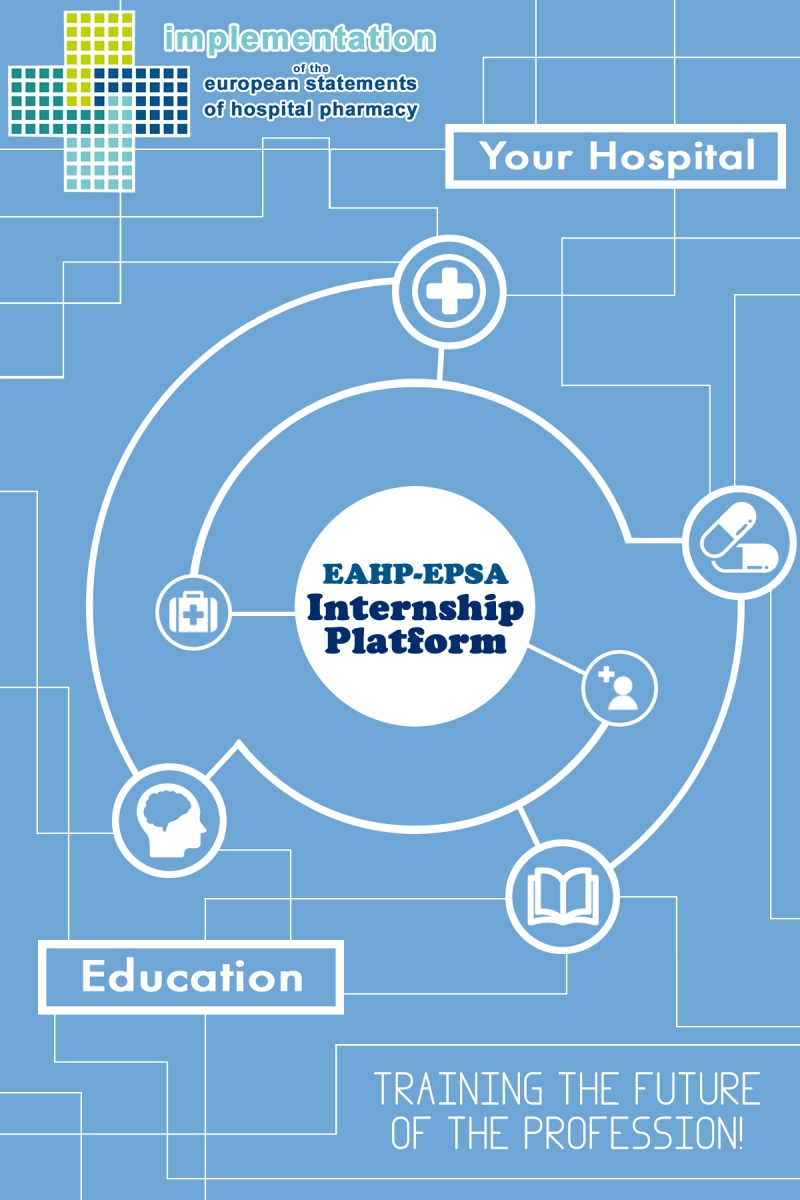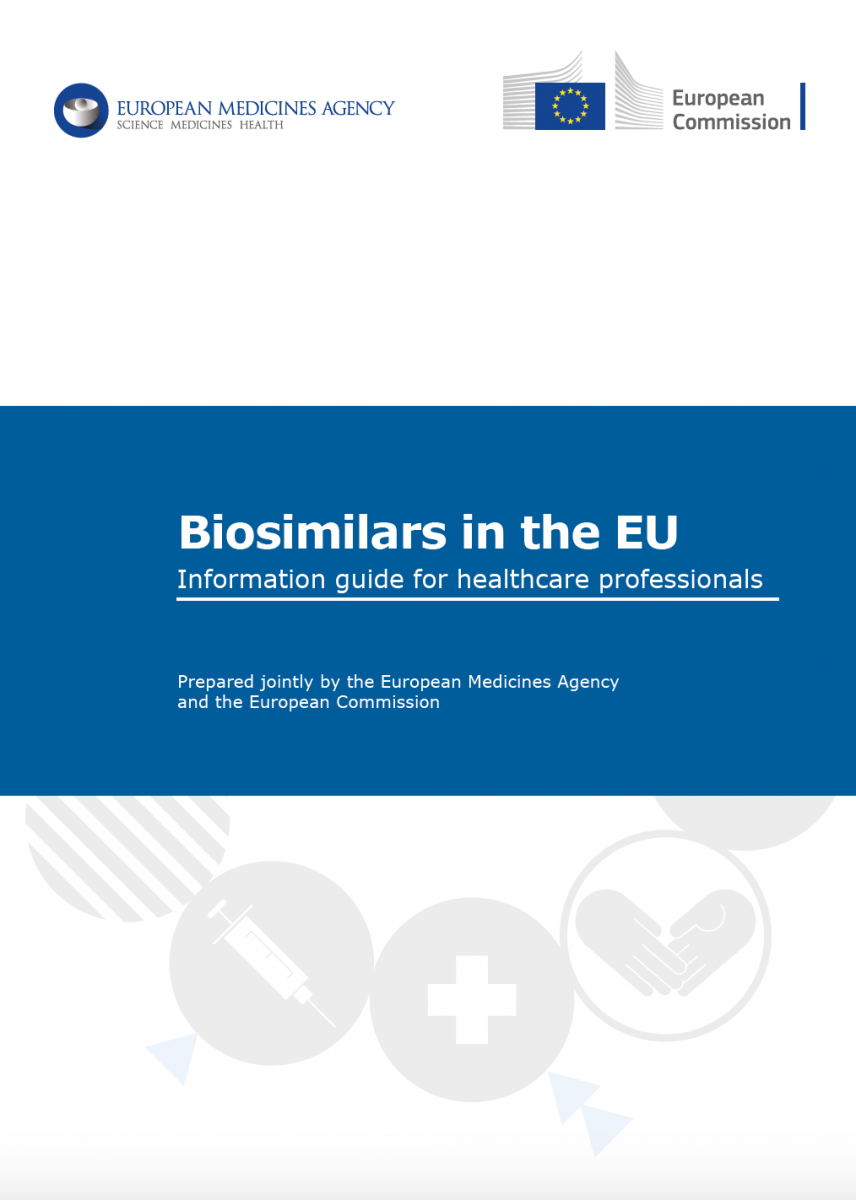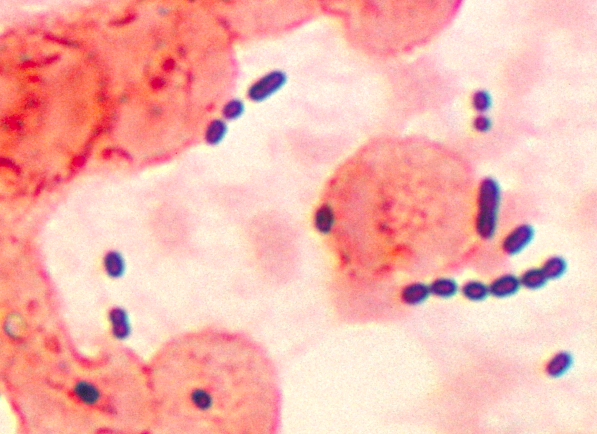EAHP EU Monitor - 10 May 2017
 The EAHP EU Monitor is a regular round up of news relevant to hospital pharmacy in Europe.
The EAHP EU Monitor is a regular round up of news relevant to hospital pharmacy in Europe.
You can subscribe to receive the EAHP EU Monitor by email HERE.

EAHP-EPSA Internship Platform: sign up your hospital pharmacy
The EAHP-EPSA Internship Platform – a collaboration between the European Association of Hospital Pharmacists (EAHP) and the European Pharmaceutical Students' Association (EPSA) – has been operating for 4 years. The platform enables hospital pharmacies to offer students and young pharmacists from other European countries the opportunity of gaining cross-border practice experience. Currently, interested students and young pharmacists can apply for internships in 21 hospital pharmacies located in 7 different European countries (Austria, France, Germany, Hungary, Italy, Slovenia and Spain).
The interest of applicants has been growing, wherefore both EAHP and EPSA are keen on expanding the network of hospitals that have signed up to the platform. Any hospital pharmacy interested in hosting a trainee and located in one of the member states of the Council of Europe may get involved via the completion of a short application form.
If you are interested in providing a future hospital pharmacist with the opportunity to gain practical experience, sign up your hospital today by completing the application form!
For any personal queries about the platform please contact intern[at]eahp[dot]eu

New developments in biosimilar medicines
On 5th May the European Commission and the European Medicines Agency (EMA) have published an information guide for healthcare professionals on biosimilar medicines. The guide was developed in collaboration with EU scientific experts, in response to requests from healthcare professionals.
Since the approval of the first biosimilar medicine in 2006, EMA's Committee for Medicinal Products for Human Use (CHMP) has recommended 28 biosimilars for use in the EU. The evidence acquired over 10 years of clinical experience shows that biosimilars approved through EMA can be used as safely and effectively in all their approved indications as other biological medicines.
The growing biosimilar market lead in 2013 to the development of a consensus document containing valuable information on biosimilar medicinal products. Further information was provided to patients in 2016, when the European Commission published a Q&A document addressing the most common questions on biosimilar medicines.
With the information guide for healthcare professionals EMA and the Commission have now made available a comprehensive set of reliable information on biosimilar medicines. The guide takes into consideration views of organisations from across the EU representing doctors, nurses, pharmacists and patients that have contributed their input during the drafting process to ensure that the guide adequately addresses questions relevant to healthcare professionals.
The guide was presented to the public at the third stakeholder conference on biosimilar medicine, organised by the European Commission Directorate General for the Internal Market, Industry, Entrepreneurship and SMEs (DG GROW). The event provided patients, doctors, pharmacists, academics, authorities and industry with the opportunity to share their experiences with biosimilar medicines across Europe. In addition, it served as a platform for the launch of the updated report on the impact of biosimilar completion on price, volume and market share, prepared on request of the European Commission by QuintilesIMS in cooperation with industry stakeholders.
The updated report describes the effects on price, volume and market share following the arrival and presence of biosimilar competition in the European Economic Area. A set of Key Performance Indicators (KPI's) was used to monitor the impact of biosimilars in European markets in 2016. Evidence presented in the updated report shows a consistent average price reduction in therapy areas where biosimilars have been introduced.
The updated report is available HERE
The guide for healthcare professionals on biosimilar medicines is available HERE

Updated tools for surveillance of healthcare-associated infections available
The Healthcare-associated Infections Surveillance Network (HAI-Net) which is coordinated by the European Centre for Disease Prevention and Control (ECDC) recently published two updated protocols for the surveillance of healthcare-associated infections (HAIs).
The update addresses on the one hand surgical site infections (SSIs) which are one of the most common HAIs, leading to longer post-operative hospital stays, additional surgical procedures and treatment in an ICU. The second updated protocol covers HAIs and prevention indicators in intensive care units (ICUs). Patients admitted to ICUs are more at risk of contracting a HAI due to both intrinsic (e.g. immune system depression) and extrinsic (e.g. mechanical ventilation) factors. They are also often exposed to antimicrobial resistance problems, which complicate the treatment of severe infections due to the availability of limited treatment options for these HAIs.
The update of the protocols mainly aims at ensuring the standardisation of definitions, data collection and reporting procedures throughout Europe. By aligning definitions and procedures the prevention and control of HAIs as well as patient safety can be increased and the long-term goal of improving the quality of care in European hospitals can be achieved.
The protocols are used by hospitals that are voluntarily participating in the national/regional surveillance of HAIs. An additional objective of the updated HAI-Net SSI and ICU protocols is to compare and follow-up the implementation of key measures for the prevention of SSIs and HAIs in ICUs (especially device-associated pneumonia and bloodstream infections).
Besides the protocols, the HAI-Net also made available a new version of the free surveillance software application. The update now includes the HAI-Net ICU and HAI-Net CDI modules. The HAI-Net SSI module is planned to be released by the end of this year. Data on HAIs is reported by participating hospitals through this surveillance software to the national surveillance centres that are part of HAI-Net.
Find the protocol on the surveillance of SSIs HERE
Find the protocol on the surveillance of HAIs and prevention indicators in ICUs HERE
 Support post-doctoral research on medication wastage minimisation
Support post-doctoral research on medication wastage minimisation
Dr Lorna Marie West is currently pursuing a post-doctoral scholarship within the Department of Clinical Pharmacology & Therapeutics at University of Malta under the mentorship of Professor Maria Cordina and in collaboration with Professor Derek Stewart. Her research comprises of several phases exploring and implementing medication wastage minimisation strategies in Malta and European countries.
Her study is part-funded by the REACH HIGH Scholars Programme – Post Doctoral Grants. The grant is part-financed by the European Union, operational Programme II – Cohesion Policy 2014 – 2020 'Investing in human capital to create more opportunities and promote the well-being of society' – European Social Fund.
Currently, Dr West is preparing a questionnaire to identify wastage minimisation laws and policies, as well as current action plans in place targeting medication wastage minimisation, medication storage and disposal amongst European countries. Results will help identify possible successful strategies that minimise medication wastage.
Her questionnaire can be completed voluntarily via the online tool Survey Monkey. Interested participants will also be provided with the opportunity to directly answer questions during a skype interview. The study is not anonymous but information will be kept completely confidential. Names of participants will not appear in any report or publication arising from this study. Only country names will be published. The full findings of the study will be presented at international conferences, and submitted for publication in a peer reviewed journal.
Those interested in participating in the survey or in being interviewed via skype can contact Dr Lorna Marie West by email (lorna.west[at]um.edu[dot]mt). The questionnaire will be sent around August/September 2017.

EJHP: Impact of new health information technology on cancer chemotherapy management
The online first edition of the European Journal of Hospital Pharmacy (EJHP) has published an article discussing the implementation of new health information technology for the management of cancer chemotherapies. The study underling the article evaluated the impact of new software designed for the management of anticancer chemotherapies.
More HERE
--------------------------------------------------------------
![]() Upcoming events
Upcoming events
16 May – First year of operation of the 'European Professional Card' (EPC) and the 'Alert Mechanism'
Brussels, Belgium
The workshop will provide the opportunity to reflect on and to discuss first results of the survey launched by the Commission to gather views on first experiences with both initiatives. The EPC is currently available to general care nurses, physiotherapists, pharmacists, real estate agents and mountain guides.
EAHP attendee: Stephanie Kohl
17 May to 19 May – EAFP Conference: Multidisciplinary learning in pharmacy education
Helsinki, Finland
The theme of the Annual meeting in 2017 is "Interdisciplinary Pharmacy Education". Sessions of scientific and educational plenary lectures and oral communications include: Patient-Centered Pharmacy Education, Pharmaceutical Sciences Oriented Education, Teaching Methodology and Programme Design, and Hands-On Interactive Learning.
EAHP attendee: Joan Peppard
14 – 16 June - 23rd Medicines for Europe - 20th IGBA Annual Conference
Lisbon, Portugal
The conference will discuss market trends, innovative commercial strategies, new updates and opportunities for growth for affordable medicines. EAHP board member Aida Batista will be participating in a panel discussing a concrete approach to tackle economic and regulatory aspects of shortages.
EAHP speaker: Aida Batista




